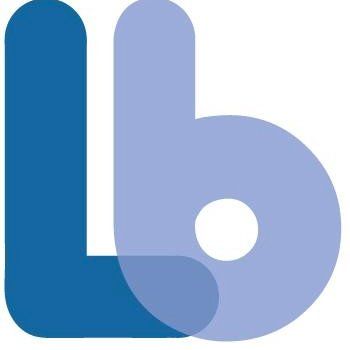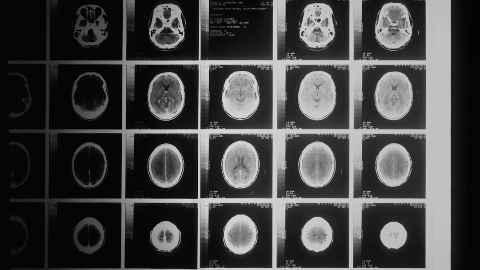预约演示
更新于:2026-02-07

LB Pharmaceuticals, Inc.
更新于:2026-02-07
概览
标签
神经系统疾病
小分子化药
疾病领域得分
一眼洞穿机构专注的疾病领域
暂无数据
技术平台
公司药物应用最多的技术
暂无数据
靶点
公司最常开发的靶点
暂无数据
| 疾病领域 | 数量 |
|---|---|
| 神经系统疾病 | 1 |
| 排名前五的药物类型 | 数量 |
|---|---|
| 小分子化药 | 2 |
| 排名前五的靶点 | 数量 |
|---|---|
| 5-HT7 receptor x D2 receptor x D3 receptor | 1 |
关联
2
项与 LB Pharmaceuticals, Inc. 相关的药物作用机制 5-HT7 receptor拮抗剂 [+2] |
非在研适应症- |
最高研发阶段临床3期 |
首次获批国家/地区- |
首次获批日期- |
靶点- |
作用机制- |
在研适应症 |
非在研适应症- |
最高研发阶段早期临床1期 |
首次获批国家/地区- |
首次获批日期- |
5
项与 LB Pharmaceuticals, Inc. 相关的临床试验NCT07369154
A 52 Week, Open Label Safety and Tolerability Study of LB-102 in Adult Patients With Schizophrenia
Phase 3, open label, multicenter study designed to assess the long term safety and tolerability of LB-102 for the treatment of adult patients with stable schizophrenia
开始日期2026-04-01 |
申办/合作机构 |
NCT07363577
A Randomized, Double-blinded, Placebo-controlled, Multicenter Study to Evaluate the Antipsychotic Efficacy and Safety of LB 102 in the Treatment of Adult Patients With Acute Schizophrenia
This is a Phase 3, randomized, double blind, placebo controlled, fixed dose, study designed to evaluate the efficacy, safety, tolerability, and of LB-102 versus placebo for the treatment of adult patients with an acute exacerbation of schizophrenia.
开始日期2026-03-01 |
申办/合作机构 |
NCT06179108
A Randomized, Double-blinded, Placebo-controlled, Multicenter Study to Evaluate the Antipsychotic Efficacy and Safety of LB-102 in the Treatment of Adult Patients With Acute Schizophrenia
This is a Phase 2, randomized, double-blind, placebo-controlled, multi-center inpatient study to evaluate the efficacy and safety of LB-102 in adult patients diagnosed with acutely exacerbated schizophrenia. To determine whether LB-102 administered to patients with acutely exacerbated schizophrenia demonstrates antipsychotic efficacy, as determined by a change from Baseline on the Positive and Negative Syndrome Scale (PANSS) total score, compared to placebo at 28 days. The secondary objectives of the study are to evaluate improvement in CGI-S, safety and tolerability, and pharmacokinetics.
开始日期2023-11-29 |
申办/合作机构 |
100 项与 LB Pharmaceuticals, Inc. 相关的临床结果
登录后查看更多信息
0 项与 LB Pharmaceuticals, Inc. 相关的专利(医药)
登录后查看更多信息
2
项与 LB Pharmaceuticals, Inc. 相关的文献(医药)2025-01-01·NEUROPSYCHOPHARMACOLOGY
PET clinical study of novel antipsychotic LB-102 demonstrates unexpectedly prolonged dopamine receptor target engagement
Article
作者: Prensky, Zachary ; Nicol, Ginger ; Kuwabara, Hiroto ; Wong, Dean F. ; Schindler, Thomas H ; Grattan, Vincent T ; Grattan, Vincent T. ; Wong, Dean F ; Tian, Lucy ; Eramo, Anna ; Hixon, Mark S ; Schindler, Thomas H. ; Chand, Ganesh B. ; Vaino, Andrew R. ; Caito, Nicole ; Lessie, Erin ; Hixon, Mark S. ; Vaino, Andrew R ; Gründer, Gerhard ; Chand, Ganesh B ; Valenta, Ines
Abstract:
Regulation of dopamine activity has important clinical consequences, most notably in schizophrenia. LB-102, N-methyl amisulpride, is a novel dopamine D2/3/5-HT7 inhibitor being developed as a treatment for schizophrenia and other psychiatric disorders. The characteristic that is common to all current antipsychotics is their engagement of D2 dopamine receptors. The goal of this study was to measure the dopamine receptor occupancy of orally administered LB-102 at three different doses (50, 75, and 100 mg as single doses and 50 and 100 mg as multiple doses) and at different timepoints in healthy volunteers using positron emission tomography (PET) with 11C raclopride as a radiotracer. Results of this study (NCT04588129) showed that steady-state once daily oral dosing of 50 mg LB-102 afforded striatal dopamine occupancy (RO) in the desired 60–80% range consistently over the course of 24 h. Contrary to the often observed relationship between RO vs plasma concentrations, maximum dopamine RO significantly lagged maximum plasma concentration and showed little variability under steady state conditions. A similar phenomenon has recently been reported with a non-racemic version of amisulpride [1]. LB-102 was generally safe and well-tolerated at all doses. Results of this study were used to inform dosing in a subsequent Phase 2 clinical study in schizophrenia patients.
2022-09-01·Psychopharmacology
A randomized, double-blind, placebo controlled, phase 1 study of the safety, tolerability, pharmacokinetics, and pharmacodynamics of LB-102, a selective dopamine D2/3/5-HT7 inhibitor
Article
作者: Grattan, Vincent T ; Prensky, Zachary ; Biernat, Lukasz ; Vaino, Andrew R ; Hixon, Mark S
LB-102 is an N-methylated analogue of amisulpride under development to treat schizophrenia. LB-102 was evaluated in a Phase 1, double-blind, placebo-controlled, clinical study to evaluate safety and pharmacokinetics. This was a first-in-human study examining single and multiple doses of LB-102 administered orally in 64 healthy volunteers. Dosing in the single ascending dose (SAD) portion of the study was initially planned to be 50, 100, 200, and 400 mg, with doses in the multiple ascending dose (MAD) portion to be determined based on observations in the SAD portion. As a result of two cases of EPS (acute dystonia) at 200 mg in the MAD portion of the study, dosing of that arm was discontinued and doses for the remaining cohort were decreased to 150 mg/day. Dose escalation was guided by safety and plasma concentrations of LB-102 compared to a translational model. LB-102 was generally safe and well-tolerated, and clinical lab values were unremarkable at all doses, save for prolactin which was transiently elevated in the majority of subjects treated with LB-102; there were no clinical observations associated with the increases in prolactin elevation. There was evidence of transient QT interval prolongation at the 200 mg dose, none of which resulted in clinical observation or triggered stopping criteria. There were four instances of EPS (acute dystonia), typically associated with dopamine receptor occupancy in excess of 80%, one at 100 mg QD, one at 75 mg BID, and two at 100 mg BID. A phase 2 clinical study of LB-102 in schizophrenia patients with PANSS as primary endpoint is being planned.
63
项与 LB Pharmaceuticals, Inc. 相关的新闻(医药)2026-01-29
物法双修的秀逗魔导士
第44届J.P. Morgan医疗健康大会于1月12–15日在旧金山举行。尽管今年少了天价并购的喧嚣,但高管们的对话却透露出更深层的行业共识……
访谈内容的主题和焦点侧重点各不相同,秀逗魔将它们归类为以下四类:公司领导与战略调整、生物技术与制药行业趋势、资本市场与融资、全球政策与制造业。
1
目 录
1
一. 公司领导与战略调整
从 JPM 看肥胖赛道竞争:诺和诺德新任CEO谈肥胖赛道的基本面与执行力
组织变化下的研发连续性:GSK如何保持研发管线稳定推进
二. 生物技术与制药行业趋势
安进、艾伯维、默沙东、普华永道:2026生物医药并购环境正在正在释放哪些信号
资产选择与投资取向:驱动肿瘤研发战略的关键因素是什么?哪些资产仍值得持续投入?
三. 资本市场与融资
LB制药的IPO以及背后的过程和原因
并购周期判断:站在投行视角,如何判断当前并购周期与下一个机会
四. 全球政策与制造业
关税威胁和供应链不确定性:Novartis、BMS、FUJIFILM应对策略
因篇幅限制,我们将访谈内容分篇呈现。这是【JPM 2026访谈洞察系列】第2篇。
01
Tony Wood的三年任期回顾与成就
主持人:Tony,你担任 GSK 首席科学官已经快三年了,回头看,你如何评价自己的表现?
Tony Wood:三年过得很快,我对目前的进展非常满意。过去一年我们完成了13项III期临床研究并全部取得积极结果,直接推动了5个重要产品的获批上市。现在管线势头很好,有15个核心资产正在推进,足以支撑公司到2031年的增长目标,后面还有更具潜力的下一代候选药物。
去年尤其重要的是 Depemokimab,这是首个用于呼吸系统疾病的超长效生物剂。数据显示,严重急性加重住院率下降约 72%,一年只需给两次药。
此外,Nucala(Mepolizumab)在 COPD 获得了很好的回馈,适用人群广,因急性加重导致的住院风险降低32%-35%,这一点至关重要,因为一旦COPD患者因急性加重住院,其五年生存率只有约50%。
最后是 Blenrep(belantamab mafodotin),这已经在美国获批用于多发性骨髓瘤,这是第一个能在社区诊所使用的BCMA靶向疗法——要知道,大约70%的患者都是在社区接受治疗的。患者一直急需这样的新选择,现在市场反馈也非常好。
02
研发策略的延续与调整
主持人:你上任后是延续原有研发策略,还是做了明显调整?
Tony Wood:两者都有。我曾是Hal Barron博士团队中的一员,他非常重视遗传学和基因组学的价值。我接手后,重点是把研发聚焦到四大核心领域:肿瘤、呼吸与免疫、疫苗和 HIV,并加强了与商业团队的联系。
我们后期研发效率在行业中处于前列,但更重要的是把资源转向更有医学价值和更大疾病负担的领域。
03
“必要不充分”原则
主持人:业内普遍认为,一个靶点必须有遗传学验证才值得投入,但你却说这是“必要但不充分”的,能否展开讲讲?
Tony Wood:没错。遗传学,尤其是基于全基因组关联研究(GWAS)的数据,确实能通过孟德尔随机化等方法帮助我们判断因果关系。
但问题在于这种因果关系是绑定在最初发现基因变异时所用的那个表型上的——而这些表型往往比较粗糙,它依赖的性状不够精确,只能解释约 50% 的疾病遗传性。仅靠基因变异和性状分析,很难预测疗效强度和适用患者,还需要更多生物学层面的理解。
04
GSK的靶点发现优势
主持人:通常大型药企更强调临床执行力或商业化能力,但你多次强调 GSK 的优势是发现靶点,这一点很少见,为什么这么重要?
Tony Wood:我们同样重视分子设计和临床开发,也非常重视靶点选择。但鉴于刚才提到的局限,我们必须在遗传学之上获取更多信息,比如深入理解靶点背后的机制、潜在疗效,以及最关键的是哪些患者、在哪个阶段最可能获益。
为此我们推出了“数据+技术”双轮驱动的策略,例如GSK和剑桥大学合作研究肺病和肾病、与生物AI公司Ochre联手推进肝病项目,也邀请了Sarah Teichmann博士加入,帮我们搭建了单细胞分析平台。通过整合遗传学、表型分析、影像学和组织病理数据,我们一步步把“靶点—作用机制—适用患者—临床终点”这条链路打通。
05
GSK如何看待在中国的战略布局
主持人:在全球布局上,你如何看待中国近年来生物医药的突飞猛进?GSK目前在中国有研发布局吗?未来会进一步加强吗?
Tony Wood:我们的原则一直很明确:哪里有符合我们战略的优质机会,资源就往哪里倾斜。中国正在成为全球医药创新的重要引擎,这一点我们非常认可。目前,我们在中国已有研发,但更多是通过合作来推进,比如去年和翰森制药达成了一项重磅ADC合作,靶点是B7-H3/H4,还与恒瑞签署了涵盖11个项目的合作协议,其中首个披露的是一个用于呼吸系统疾病的PDE3/4抑制剂。
未来我们会继续在中国寻找符合 GSK 研发战略的机会。
06
GSK对中国本土Biotech资产的评价
主持人:回到中国合作,你如何评价本土Biotech资产的质量?未来会加大合作力度吗?
Tony Wood:所有合作都必须经过严格筛选。如果是晚期资产,我会从整体管线协同性来评估,如果是早期项目,则重点看科学基础是否扎实。无论哪种,我们都坚持高标准。
我们已经建立起与中国合作伙伴在CMC、注册申报和全球供应链等方面的高效协作机制。在今天,GSK的态度很明确:灵活、务实,积极参与。
07
2026年BD/并购策略展望
主持人:2026年,在BD或并购方面你最希望引入什么样的资产?
Tony Wood:具体方向需要保密,但可以肯定的是,我们会延续既定策略:一方面,继续引进与现有管线高度协同的晚期“补强型”资产——比如我们在长效制剂领域的持续投入,另一方面,在早期阶段布局那些能揭示跨疾病共性机制的新靶点。
明天我们将深入探讨2026生物医药并购环境正在正在释放哪些信号,敬请期待!
推荐阅读
独家整理诺和诺德、GSK、强生、LB制药等高管核心观点,行业巨头药企与资本领袖对话实录,揭示2026关键趋势
物法双修的秀逗魔
通知丨2026人工智能与生物医药生态大会将于7月在上海召开
物法双修的秀逗魔
中国原研药出海:License-Out交易动态追踪
物法双修的秀逗魔
默沙东CEO深度访谈:Robert Davis如何应对Keytruda专利到期悬崖?如何布局肿瘤、免疫领域?在这些竞争激烈的领域,默沙东的管线有多强?
物法双修的秀逗魔
2026-01-28
Topline data expected in 1Q 2028
Phase 2 bipolar depression trial initiation follows positive Phase 2 results in acute schizophrenia
Jan. 26, 2026 -- LB Pharmaceuticals Inc (“LB Pharmaceuticals” or the “Company”) (Nasdaq: LBRX), a clinical-stage biopharmaceutical company developing novel therapies for schizophrenia, bipolar depression, and other neuropsychiatric diseases, today announced the initiation of a Phase 2 trial evaluating the efficacy and safety of LB-102 in patients with bipolar depression. LB-102, a novel, once-daily, oral investigational small molecule, is a potent and selective antagonist of D2, D3, and 5HT7 receptors that is being advanced as a potential first benzamide antipsychotic in the U.S. for the treatment of neuropsychiatric disorders.
“Our year is off to a strong start and the initiation of this Phase 2 trial in patients with bipolar depression marks an important step in our strategy to expand the potential of LB-102 for the treatment of mood disorders,” said Heather Turner, Chief Executive Officer of LB Pharmaceuticals. “We believe the compelling results from our Phase 2 trial in acute schizophrenia, the heritage of clinical and real-word experience with amisulpride in the treatment of mood disorders, and our innovative fixed-flexible dose trial design can significantly derisk this program. We look forward to a number of late-stage clinical catalysts, including results from this Phase 2 trial in the first quarter of 2028, as well as from our planned Phase 3 trial in schizophrenia which remains on track to initiate this quarter with results expected in the second half of 2027.”
Anna Eramo, Chief Medical Officer of LB Pharmaceuticals added, “We believe LB-102’s pharmacologic profile, including selective D2, D3, and 5HT7 receptor antagonism and favorable tolerability observed in prior clinical trials, aligns well with the critical unmet needs in bipolar depression. Significant opportunity exists for new therapies that can offer early onset of effect, reduced side effects such as sedation and EPS (including akathisia), and improvement in anhedonia and cognitive deficits, all of which can impact a patient’s ability to function.”
The Phase 2 trial is a multi-center, randomized, double-blind, placebo-controlled trial with fixed- and flexible-doses and is designed to evaluate the efficacy and safety of two doses (25 mg and 50 mg given once daily) of LB-102 for the treatment of bipolar depression. The two-arm, six-week, outpatient trial is expected to enroll approximately 320 patients with bipolar 1 depression at approximately 30 sites in the U.S. Patients will be randomized 1:1 to receive either LB-102 or placebo. The primary endpoint is the Montgomery–Åsberg Depression Rating Scale (MADRS)-10 at week six. The primary statistical analysis will compare results from all patients receiving LB-102, regardless of dose, with placebo. Secondary endpoints include MADRS-6, and CGI-BP, cognition, and anhedonia, as well as safety and tolerability. Topline results from the trial are anticipated in the first quarter of 2028.
LB-102 is a novel, once-daily, orally administered investigational small molecule and potential first benzamide antipsychotic in the U.S. for the treatment of neuropsychiatric disorders. A methylated derivative of amisulpride, a widely used antipsychotics outside the U.S., LB-102 was developed to retain amisulpride’s benefits while addressing its limitations. LB-102 is a potent and selective antagonist of D2, D3, and 5HT7 receptors with few off-target effects and broad therapeutic potential across psychosis and mood disorders. In early 2025, LB Pharmaceuticals announced positive data from a four-week placebo-controlled, double-blinded, Phase 2 trial in patients with acute schizophrenia. In this trial, LB-102 demonstrated statistically significant benefit versus placebo at all doses studied, including rapid and sustained benefit, a potentially class-leading safety profile with low rates of EPS (including akathisia), minimal sedation and few GI side effects, alongside robust effects on cognition and negative symptoms. These data underscore LB‑102’s potential to address multiple dimensions of neuropsychiatric illness. LB-102 is advancing into a Phase 3 clinical trial for schizophrenia and a Phase 2 clinical trial for bipolar depression has been initiated. Additional expansion opportunities for LB-102 include major depressive disorder, predominantly negative symptoms of schizophrenia, Alzheimer’s disease psychosis and agitation, as well as other neuropsychiatric diseases.
Bipolar disorder is a chronic, debilitating mood disorder in which patients alternate between manic and depressive states. There are approximately 7 million patients in the U.S. and 40 million patients worldwide suffering from bipolar disorder. Antipsychotic medications, with or without mood stabilizers, are a mainstay of therapy for bipolar depression due to their ability to control depressive symptoms while preventing the emergence of mania. Despite the availability of several branded and generic therapeutics, significant unmet needs remain including faster onset without dose titration, lower rates of adverse events (including extrapyramidal symptoms, sedation, and GI side effects), efficacy against residual symptoms (including anhedonia and cognitive deficits), as well as improved medication adherence. Approximately 60% of patients with bipolar depression experience cognitive impairment and loss of interest/enjoyment (anhedonia) despite treatment, as well as high rates of adverse events, which together contribute to high rates of medication discontinuation and increased risk of relapse.
LB Pharmaceuticals is a clinical-stage biopharmaceutical company developing novel therapies for the treatment of schizophrenia, bipolar depression, and other neuropsychiatric diseases. The Company is building a pipeline that leverages the broad therapeutic potential of its lead product candidate, LB-102, which the Company believes has the potential to be the first benzamide antipsychotic drug approved for neuropsychiatric disorders in the United States. LB-102, if approved, has the potential to become a mainstay of psychiatric practice by offering a balanced clinical activity and tolerability profile that provides a potentially attractive alternative to branded and generic therapeutics for the treatment of schizophrenia, bipolar depression, and other neuropsychiatric diseases.
The content above comes from the network. if any infringement, please contact us to modify.

临床结果
2026-01-09
The $318 million proceeds make Aktis a larger IPO than any of the handful of biotech offerings last year.\n Aktis Oncology exceeded its own expectations for its IPO in a good omen for those hoping for a more inviting public market this year.The company, which has accrued an impressive list of Big Pharma backers in its previous funding rounds, estimated earlier this week that it would sell 11.8 million shares priced between $16 and $18 apiece. But the IPO this morning sees the biotech reach the top end of the price range while bumping up the number of shares to 17.6 million.The recalibrated figures mean the IPO should bring in gross proceeds of about $318 million—significantly above the net proceeds of $181.7 million the company had predicted Monday.The proceeds could rise by another $47.6 million if underwriters take up their 30-day offer to buy an additional 2.6 million shares at the same price of $18. The previous expectation was that Aktis would only offer 1.7 million shares to underwriters.Aktis’ shares are due to start trading on the Nasdaq Friday morning under the ticker “AKTS.”The $318 million proceeds make the biotech a larger IPO than any of the handful of biotech offerings last year—beating obesity biotech Metsera’s $275 million, LB Pharmaceuticals’ $285 million or MapLight Therapeutics’ $250 million IPOs.In its filing on Monday, Aktis explained how it had earmarked between $140 million and $150 million of the proceeds to fund the ongoing U.S. phase 1b study of the miniprotein radiopharmaceutical Ac-AKY-1189 for Nectin-4 expressing tumors. Preliminary results from the dose-escalation portion of the study are expected to read out in the first quarter of 2027. Aktis has previously pointed out that Pfizer and Astellas\' Padcev, an antibody-drug conjugate that also targets Nectin-4, brought in worldwide sales of $1.9 billion in 2024. Aktis has argued that Padcev has had “limited” impact beyond urothelial cancer due to the need to develop a companion diagnostic.The biotech is hoping to carve out its own niche for Ac-AKY-1189 by using imaging radioisotopes conjugated to the drug to select patients most likely to benefit from the treatment.Meanwhile, another $70 million to $80 million of the IPO proceeds is expected to fund the launch a phase 1b study of its second asset, Ac-AKY-2519, for B7-H3 expressing tumors, according to Monday’s filing.Aktis oversaw 76 full-time employees as of September 2025, who are based across a site in Boston and another in Durham, North Carolina. The company, which ended September with $246.2 million still in the bank, has previously said it expects the IPO proceeds will help keep the company financed until the first half of 2028.The biotech saw the likes of Bristol Myers Squibb and Merck & Co.’s MRL Ventures Fund join previous backer Eli Lilly for a $175 million series B last year. The pharma attention was based on Aktis’ platform for delivering alpha emitters to cancer cells using miniproteins, an approach that could potentially destroy tumors without causing intolerable harm to healthy tissues.Aktis’ upsized IPO backs up industry observers’ predictions to Fierce that the IPO window could reopen in 2026—although no other biotechs have yet confirmed they will be following Aktis’ lead this year.

IPO临床1期抗体药物偶联物
100 项与 LB Pharmaceuticals, Inc. 相关的药物交易
登录后查看更多信息
100 项与 LB Pharmaceuticals, Inc. 相关的转化医学
登录后查看更多信息
组织架构
使用我们的机构树数据加速您的研究。
登录
或

管线布局
2026年03月01日管线快照
管线布局中药物为当前组织机构及其子机构作为药物机构进行统计,早期临床1期并入临床1期,临床1/2期并入临床2期,临床2/3期并入临床3期
早期临床1期
1
1
临床3期
登录后查看更多信息
当前项目
| 药物(靶点) | 适应症 | 全球最高研发状态 |
|---|---|---|
N-methyl amisulpride ( 5-HT7 receptor x D2 receptor x D3 receptor ) | 急性精神分裂症 更多 | 临床3期 |
LB-104 | 抑郁症 更多 | 早期临床1期 |
登录后查看更多信息
药物交易
使用我们的药物交易数据加速您的研究。
登录
或

转化医学
使用我们的转化医学数据加速您的研究。
登录
或

营收
使用 Synapse 探索超过 36 万个组织的财务状况。
登录
或

科研基金(NIH)
访问超过 200 万项资助和基金信息,以提升您的研究之旅。
登录
或

投资
深入了解从初创企业到成熟企业的最新公司投资动态。
登录
或

融资
发掘融资趋势以验证和推进您的投资机会。
登录
或

生物医药百科问答
全新生物医药AI Agent 覆盖科研全链路,让突破性发现快人一步
立即开始免费试用!
智慧芽新药情报库是智慧芽专为生命科学人士构建的基于AI的创新药情报平台,助您全方位提升您的研发与决策效率。
立即开始数据试用!
智慧芽新药库数据也通过智慧芽数据服务平台,以API或者数据包形式对外开放,助您更加充分利用智慧芽新药情报信息。
生物序列数据库
生物药研发创新
免费使用
化学结构数据库
小分子化药研发创新
免费使用